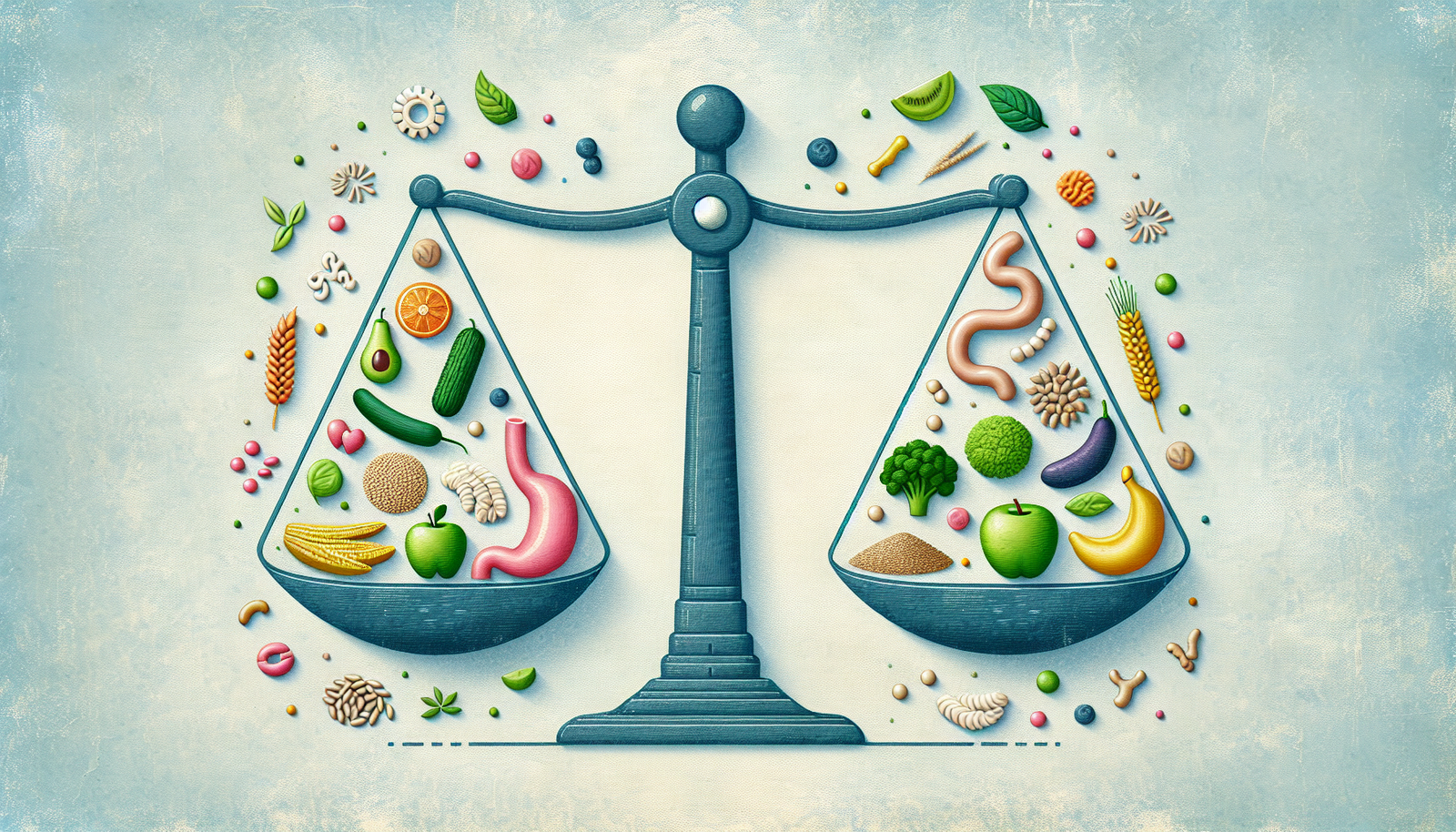How Digestive Enzymes Can Reduce Bloating and Gas
What are Digestive Enzymes?
Digestive enzymes are proteins produced by our body that facilitate the breakdown of food into smaller molecules, making it easier for our intestines to absorb nutrients. There are three primary categories of digestive enzymes:
- Amylases – Break down carbohydrates into simple sugars (monosaccharides).
- Proteases – Reduce proteins into amino acids.
- Lipases – Break down fats into fatty acids and glycerol.
These enzymes ensure that the food we consume is properly digested, allowing our body to effectively use the nutrients obtained.
The Science Behind Bloating and Gas
Bloating and gas are common digestive issues that arise due to a variety of reasons, including food intolerance, improper digestion, and gut imbalances. When food is not fully digested, it ferments in the intestines, producing gases like hydrogen and methane. Bloating occurs when gas production exceeds the normal amount or when there’s a buildup of fluid in the gastrointestinal system.
The following factors can contribute to bloating and gas:
- Excess air swallowing: This can occur during eating or drinking too quickly.
- High-fiber foods: While healthy, fiber is not always easily digested, resulting in fermentation.
- Food intolerances: Lactose intolerance, for example, can lead to gas accumulation from unprocessed dairy.
- Gut imbalances: An imbalance in gut bacteria can lead to efficiency problems in digestion.
How Digestive Enzymes Work
The bodily synthesis of digestive enzymes occurs in the salivary glands, stomach, pancreas, and small intestine. Each of these organs plays a role in enzymatic digestion, ensuring food is broken down efficiently. When these enzymes are present in adequate amounts, they help to:
1. Enhance Nutrient Absorption
By breaking down the food more effectively, digestive enzymes allow for better absorption of vitamins and minerals. When nutrients are efficiently absorbed, it reduces the digestive workload on the intestines, helping to minimize symptoms like bloating and gas.
2. Reduce Food Fermentation
Digestive enzymes work to reduce the fermentation of undigested food in the intestines. By metabolizing carbohydrates, proteins, and fats faster, there’s less substrate available for bacteria to ferment, leading to less gas production.
3. Improve Gut Health
A healthy gut flora balances the various bacteria living in our intestines. Digestive enzymes can promote beneficial bacteria’s growth while hindering harmful strains, enhancing gut health and potentially reducing gas and bloating.
Types of Digestive Enzymes
Different types of digestive enzymes target various food components. By understanding which enzymes target specific food groups, one can improve digestion tailored to their dietary needs.
1. Plant-Based Enzymes
Rich in proteases and amylases, these enzymes are derived from plants and are effective in breaking down a variety of food types, including grains and legumes. Food sources include:
- Pineapple: Contains bromelain, effective in protein digestion.
- Papaya: Contains papain, another protein-digesting enzyme.
- Kiwi: Contains actinidin, which can aid protein breakdown.
2. Animal-Based Enzymes
These enzymes are derived from animal pancreas and are often more concentrated. Examples include:
- Pancreatin: A mixture of digestive enzymes, primarily used in supplement form.
- Pepsin: A stomach enzyme responsible for protein digestion which functions at the stomach’s acidic pH.
3. Microbial Enzymes
These enzymes are produced by yeasts or bacteria and can be introduced via probiotic supplements. They can aid in breaking down complex carbohydrates and fibers, benefitting those with sensitive digestive systems.
Enzyme Supplementation and Its Benefits
Digestive enzyme supplements can provide significant relief for individuals suffering from bloating and gas, especially in cases where the body may not produce sufficient enzymes naturally.
1. Addressing Specific Digestive Disorders
Certain conditions like Irritable Bowel Syndrome (IBS), Celiac disease, and pancreatitis may result in a decreased natural production of digestive enzymes. Enzyme supplementation can help mitigate symptoms, making meals easier to digest and absorb.
2. Targeting Particular Food Groups
For individuals with lactose intolerance, lactase supplements can effectively digest dairy products. Similarly, those with gluten sensitivity can benefit from specific protease supplements that break down gluten proteins.
How to Use Digestive Enzymes Effectively
To utilize digestive enzymes effectively, follow these guidelines:
1. Timing
Taking digestive enzymes just before or during meals can optimize the enzymatic activity as food enters the digestive tract, providing timely support for digestion.
2. Dosage
Consult with a healthcare professional to determine the correct dosage tailored to your dietary habits, health conditions, and specific digestive needs.
3. Lifestyle Changes
While enzyme supplementation can offer relief, combining it with dietary modifications—such as eating more fiber gradually, hydrating adequately, and chewing food thoroughly—will enhance its efficacy.
Dietary Sources of Digestive Enzymes
Incorporating natural sources of digestive enzymes could be a holistic approach to digestive health:
- Fermented foods: Foods like yogurt, kefir, and sauerkraut contain natural probiotics along with digestive enzymes that help balance gut flora.
- Raw fruits and vegetables: Include items such as kiwis, pineapples, and papayas which are rich in digestive enzymes.
- Fresh herbs and spices: Ginger and peppermint can also facilitate digestion and reduce bloating.
Potential Side Effects and Considerations
While digestive enzymes are generally considered safe, a few potential side effects can occur. These include:
- Stomach cramps: Excessive intake of certain enzymes can overload the digestive system.
- Nausea: If not taken according to dosage guidelines, it may lead to gastrointestinal upset.
- Allergic reactions: In cases of a specific allergy to ingredients in enzyme supplements, adverse effects can arise.
It’s vital to consult your healthcare provider before starting any new supplement regimen, especially if you’re dealing with chronic gastrointestinal issues.
Conclusion on Digestive Enzymes
Digestive enzymes present a comprehensive solution to mitigating bloating and gas by enhancing the overall digestion process. When supplemented appropriately and combined with healthy dietary practices, these enzymes can significantly improve digestive health, reduce uncomfortable symptoms, and enhance the quality of life. By understanding the function and sources of digestive enzymes, individuals can take control of their digestive health in a natural and effective way.








